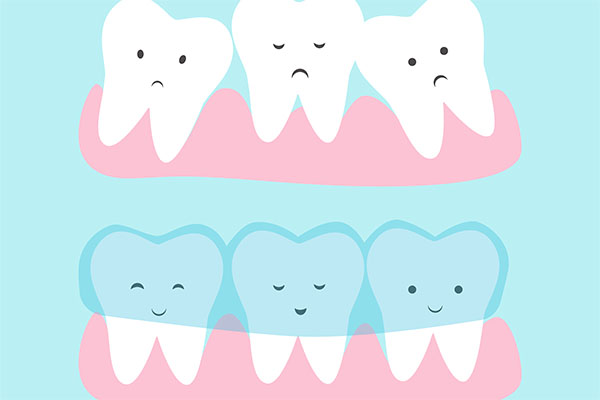5 Signs You May Have a TMJ Disorder

Temporomandibular joint disorder or TMJ disorder refers to a condition that affects the muscles, ligaments, and joints surrounding the jaw. The TMJ is a ball and socket hinge that uses sliding and hinging motions to function. The joint is at the back of the jaw and includes a bony bump called the articular eminence. The AE stops the jaw from slipping out of place.
In some cases, a patient's AE may be too high for the jaw to slip back into place, causing difficulty closing the mouth. If the disc erodes or the cartilage becomes damaged, it may also result in painful disorders of the temporomandibular joint.
5 symptoms of TMJ disorder
Dentists may have difficulty determining the cause of a patient's TMD. Often, the condition occurs due to a combination of factors, including genetics and jaw injury.
Some other factors include:
- Bruxism
- Arthritis
- Stress
- Nail-biting
Women tend to make up the majority of TMD patients. Some professionals theorize the fluctuation of hormones, particularly estrogen, may impact the development of TMJ disorders.
The following symptoms may indicate you have a TMJ disorder.
1. Pain and tenderness
The most common symptoms associated with TMJ disorder are pain and sensitivity in the jaw muscles. Patients may feel pain when yawning, speaking, or chewing. In addition to the pain associated with the jaw, patients may also experience toothaches, headaches, shoulder aches, and neck pain. You may feel the pain most when you move your jaw, but TMJ pain may also occur at rest.
To manage pain associated with TMD, patients may require mouth guards to reduce teeth grinding or clenching. You may also use ice to reduce inflammation or warm towels to alleviate pain. Avoiding chewing gum and crunchy foods may also reduce pain.
2. Stuck or locked jaw
One of the most alarming symptoms is a locked or stuck jaw. A locked jaw may result in a complete restriction of movement or a limited range of motion. The lock may occur in one of your joints or both.
When the TMJ disc slips out of place, your jaw becomes misaligned and may catch, hook, or lock. When your muscles become inflamed, the dislocation makes it hard to open and close your mouth. Often when patients suffer from locked jaw, they also have migraines and swelling.
3. Clicking and popping joints
Jaw popping and clicking usually occur due to a dysfunction in your temporomandibular joint. In some cases, you may experience no pain with jaw clicking, but when you do experience pain, it may indicate you have TMJ disorder. Sometimes jaw clenching and tooth grinding can cause popping sounds and pain.
4. Uncomfortable or troublesome bite
If your jaw is out of alignment, the muscles try to compensate but cannot. You may feel like your teeth do not close properly. Some patients also struggle with chewing hard and chewy foods. When looking in the mirror, you can check to see if your top and bottom teeth meet evenly.
If your muscles compensate for your TMJ, your face may feel tired or saggy. While some individuals experience pain following jaw use, others feel it persistently.
5. Hearing loss and auditory problems
Many people may not realize TMJ disorder's effect on auditory health. You may experience hearing loss, tinnitus, vertigo, and earaches. Three types of hearing loss may occur.
Sensorineural hearing loss occurs because of the auditory nerve or inner ear dysfunction. Sensorineural hearing loss may stop hair cells from stimulating the ear's nerves. It may also cause metabolic issues in the inner ear's fluids.
Conductive hearing loss hinders sound delivery through the middle ear to the inner ear. You may experience sound lower and less intense than average.
Some people may have mixed hearing loss, which combines sensorineural and conductive hearing loss. The reason TMJ causes these forms of hearing loss is due to inflammation. The TMJ is adjacent to the ear and may block the Eustachian tubes. When the nerves in the TMJ send pain signals to the brain, they may cross through the inner ear canal. The cross causes the brain to receive signals from both areas.
Conclusion
TMJ disorder involves the joints that connect your jawbone to your skull. Your TMJ allows you to speak, chew and swallow properly. However, if you have TMD, it can affect your ability to perform essential functions. Likewise, it may cause pain through your jaw, head, neck, and shoulders. TMD may occur due to genetics, injuries, or other disorders.
Request an appointment here: https://testcummingsfamilydentist.dgdevnext.com or call Cumming's Family Dentist at (770) 205-9226 for an appointment in our Cumming office.
Recent Posts
TMJ refers to the temporomandibular joint, which is located near the jawline. When there is any sort of malfunction with the joint, the result is TMJ disorder. Sufferers of TMJ disorder tend to experience pain and difficulty performing things such as eating, smiling and speaking. TMJ pain has treatment options, including wearing oral appliances, practicing self-care…
If you have TMJ disorder, Temporomandibular Joint Disorder, you may be interested in learning some tips from a TMJ dentist on how to make treatments more effective. TMJ disorders cause a wide array of uncomfortable symptoms that can be treated by a professional. There are a few basic steps to employ to make TMJ disorders…
As a TMJ dentist, we can treat TMJ disorder that interferes with eating, speaking and sleeping with pain in the jaw. We will help identify your symptoms and possible causes of TMJ, to customize the treatment. TMJ DentistAt Cumming's Family Dentist in Cumming, we work to customize your treatment to match your needs and schedule where…
Oral surgery may become necessary in a variety of situations. It is important to note that the patient will not feel any pain during an oral surgery. If oral surgery is necessary, we will go over all details prior. Oral SurgeryAt Cumming's Family Dentist in Cumming, we work to customize your treatment to match your needs…


